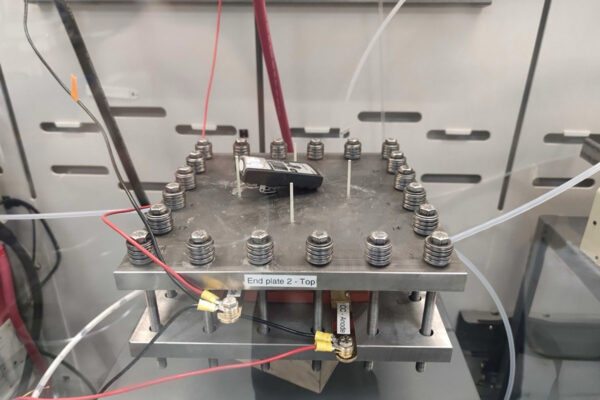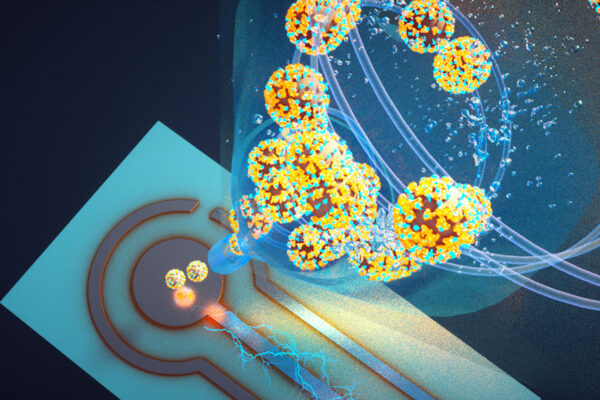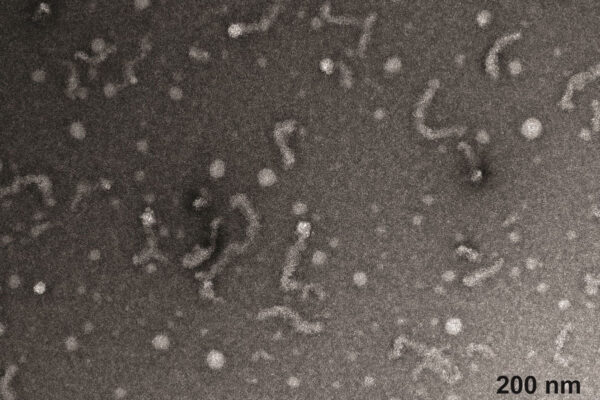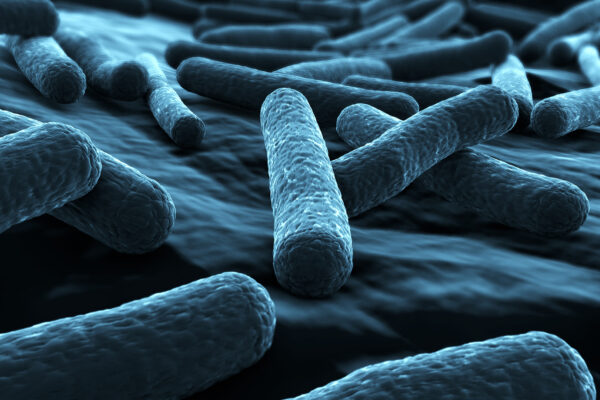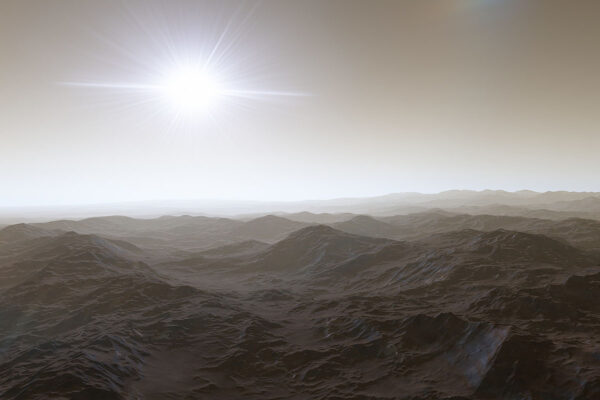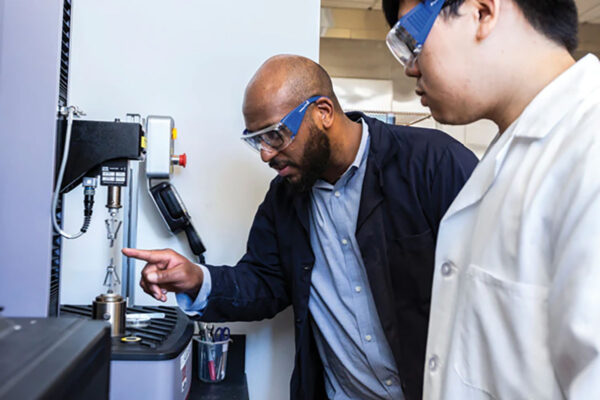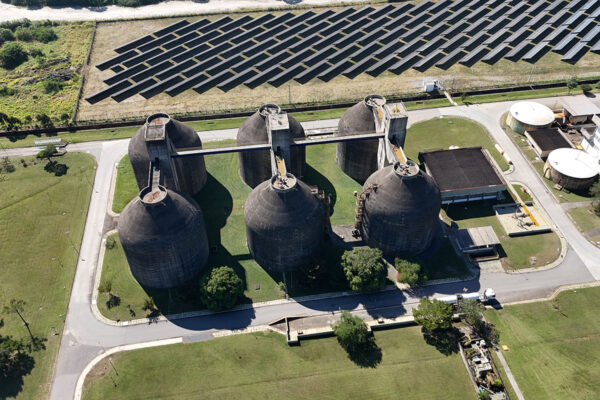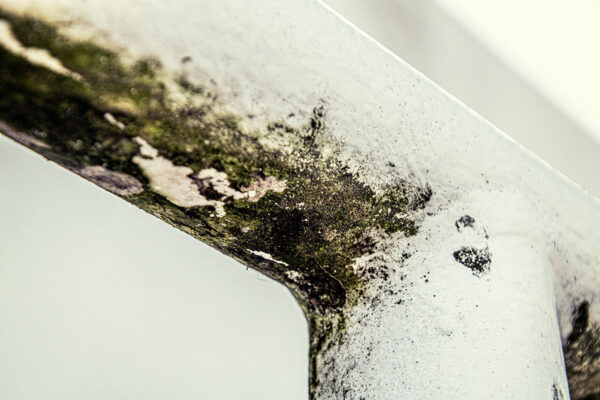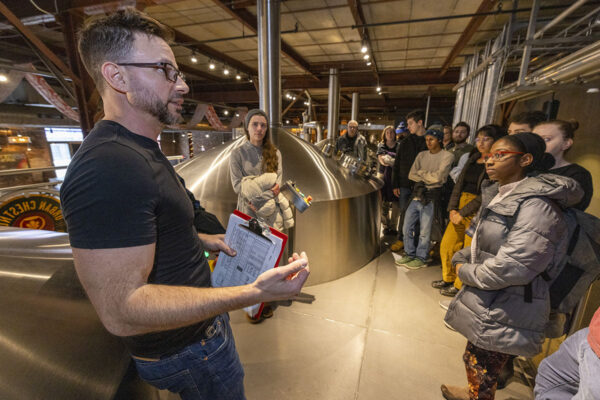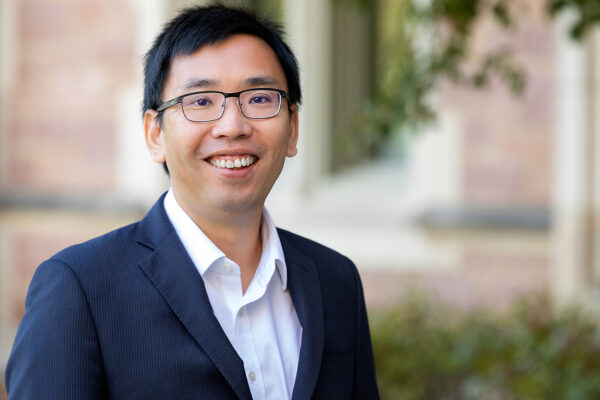Inexpensive materials transform waste carbon into energy-rich compounds
Research from engineers at Washington University in St. Louis will help turn waste gas into energy-rich compounds for sustainable manufacturing.
Disrupting infectious diseases
With a grant from the Advanced Research Projects Agency for Health, a multi-institutional research team led by scientists at Virginia Tech and Washington University in St. Louis will develop an indoor air device to disrupt transmission of infectious disease.
WashU chemists reveal new insights into ALS-linked protein
Using advanced biophysical and imaging techniques, Meredith Jackrel and her team at Washington University in St. Louis have isolated the protein Matrin-3 to better understand its role in neurodegenerative diseases.
Several faculty receive NIH MIRA awards
Several biology and medical researchers at Washington University in St. Louis have earned prestigious awards from the National Institutes of Health (NIH).
Tips for biomolecular engineering can be found in early Earth
Biomedical engineers at the McKelvey School of Engineering at Washington University in St. Louis are tackling the question of how oxygenation happened on primordial earth in a recent study published in the Proceedings of the National Academy of Sciences.
Strengthening soy for better bioplastics
Researchers at Washington University in St. Louis are using surface chemistry to improve the strength of soy and cellulose-based biomaterials.
A silver lining in sewer sludge: volatile fatty acids
Researchers at Washington University in St. Louis are finding ways to efficiently reclaim useful intermediary chemicals from sewage instead of a more energy-intensive process for biogas reclamation.
Link between surfaces in buildings, indoor air quality under spotlight
Environmental engineer Jenna Ditto, at WashU, aims to establish a link between indoor air quality and the chemistry of building material surfaces with a grant from the National Science Foundation.
Up to $5.2M in federal funds will enable WashU to develop new biomanufacturing capabilities
Researchers at Washington University in St. Louis are working on giving biomanufacturers a competitive edge by solving the challenge of continuous fermentation.
Jiao named ACS fellow
Feng Jiao, a professor at Washington University in St. Louis, was elected a 2025 American Chemical Society fellow.
Older Stories
